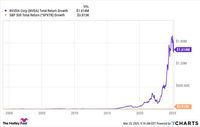NVIDIA Corporation’s CEO Jensen Huang has recently shifted his perspective on quantum computing, a notable change from his earlier comments made just two months ago. During the CES conference in January 2025, Huang expressed skepticism about the timeline for quantum computing, predicting it might take at least 15 years, and possibly up to 20 years, before the technology becomes genuinely useful. He compared the current state of quantum computing to NVIDIA’s early struggles, emphasizing that it took two decades for the semiconductor giant to establish its software and hardware business.
This cautious outlook had a significant impact on the quantum computing market, leading to a sharp decline in the stocks of several companies in the sector. However, at NVIDIA’s “Quantum Day” event last week, Huang backtracked from his earlier statements, admitting that his previous observations were misleading. He acknowledged the incredible potential of quantum computing and expressed surprise at the steep drop in quantum stocks following his January remarks.
Huang stated, "Quantum computing has incredible potential ahead," and revealed that NVIDIA is actively collaborating with various quantum computing firms to advance the technology. He believes that despite its complexity, quantum computing will have a transformative impact on various industries.
As the field of quantum computing continues to evolve, it is gaining traction for its superior problem-solving capabilities, leveraging quantum mechanics to outperform traditional computing methods. According to a report by McKinsey & Co., quantum computing could contribute a staggering $1.3 trillion to the economy by 2035. Meanwhile, MarketsandMarkets predicts that the global quantum computing market will reach $5.3 billion by 2029, growing at a compound annual growth rate (CAGR) of 32.7% from its current valuation of $1.3 billion.
In light of Huang’s renewed optimism, investors are keen to capitalize on the growth potential within the quantum computing space. Two companies, in particular, have caught the attention of market watchers: D-Wave Quantum Inc. and IonQ, Inc.
D-Wave is making headlines with its partnership with the Julich Supercomputing Centre, which is anticipated to significantly boost the company’s sales to an impressive $10 million in the first quarter, far exceeding analysts’ projections of $2.55 million. Additionally, D-Wave reported a staggering 502% surge in order bookings, reaching $18.3 million in the fourth quarter, indicating robust demand in the quantum sector.
On the other hand, IonQ has also been making waves, albeit under a cloud of investor skepticism. Recent analysis of options trading data revealed a bearish sentiment among deep-pocketed investors, with 63% leaning toward pessimism about IonQ’s future. Benzinga’s options scanner highlighted 19 unusual options activities for IonQ, with significant put options indicating a cautious outlook among major market players.
Despite the bearish sentiment, IonQ remains a key player in the quantum computing landscape. The company offers access to its quantum systems via cloud platforms, including Microsoft’s Azure and Alphabet’s Google Cloud, allowing businesses to experiment with quantum computing capabilities. IonQ has been recognized for its groundbreaking work, recently demonstrating that its quantum computer was 12% faster than classical alternatives in designing life-saving medical devices. This achievement, realized through a collaboration with engineering simulation company Ansys, showcased the practical advantages of quantum computing in real-world applications.
IonQ’s financial performance has also been noteworthy, reporting a full-year revenue of $43.1 million for 2024, representing a remarkable 95% increase year-over-year. This growth exceeded the company’s previous guidance and reflects its accelerating commercial momentum. Furthermore, IonQ raised approximately $360 million in net proceeds from an equity offering, boosting its cash reserves to over $700 million, which positions the company well for future investments and research.
However, potential investors should be cautious. IonQ reported a net loss of $331.6 million for 2024, highlighting the substantial capital investments required to advance its technology. The quantum computing sector is also facing intense competition from established tech giants like IBM, Alphabet, and Microsoft, which are all pursuing their own quantum computing initiatives.
In a recent report, Zacks Investment Ideas featured IonQ among other prominent players in the quantum computing space, including Microsoft, Alphabet, and Rigetti Computing. IonQ has been recognized as a leading quantum computing company, leveraging trapped-ion technology to tackle complex computational problems beyond the reach of classical computers. Major clients, such as Airbus, utilize IonQ’s technology to optimize aircraft loading algorithms, further validating its commercial potential.
In March 2025, insider trading disclosures revealed that IonQ director William F. Scannell purchased over $2 million worth of IONQ shares, indicating confidence in the company’s future prospects. Scannell now holds a total of 135,047 shares valued at approximately $3.5 million.
Despite the volatility in the quantum computing market, there is a shifting sentiment towards optimism. Huang's recent endorsement of quantum computing at NVIDIA’s “Quantum Day” event, coupled with significant advancements from companies like IonQ, suggests that the industry may be on the cusp of a breakthrough.
As investors weigh the risks and rewards in the quantum computing sector, the narrative is evolving. With Huang’s renewed enthusiasm and IonQ’s impressive technological advancements, the future of quantum computing looks promising. Whether these companies can deliver on their potential remains to be seen, but the foundations for a technological revolution are being laid as the industry matures.





